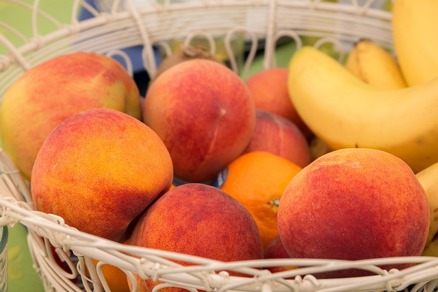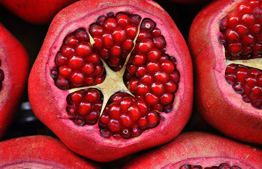The amount of terumah gedolah for olive oil today

When it is possible to use produce for fuel, such as olive oil, should we separate more than the kolshehu for terumah gedolah (as we do for other types of produce)?
Introduction
The return of the people of Israel to their land is accompanied by a revitalization of the land in anticipation of their arrival, as stated by the prophet Yechezkel (36:8): "But you, O mountains of Israel, you shall shoot forth your branches and yield your fruit to My people Israel, for they are about to come." One of the flourishing branches of agriculture is olive trees, one of the seven species for which the land is praised. One of the questions that arises during the olive harvest season is, what quantity of oil should be separated for terumah gedolah?
Discussion
To understand the issues that form the basis of the question, two preliminary explanations are necessary.
1. Discrepancy between the amount designated by the Torah and the Sages
The Yerushalmi (Terumot 4:3) records a dispute among the Amora'im regarding the quantity of terumah mandated by the Torah:
How far does a man free his ṭevel by the word of the Torah? Rebbi Yochanan said: One in a hundred like terumat ma'aser. … Rabbi Yanni said: Even one in a thousand. Rebbi Mana said: There is no fixed measure here since it is written, "The first of your grain, wine, and oil" (Devarim 18:4), indicating any amount (kolshehu).
The Bavli cites Shmuel's opinion, aligning with Rabbi Mana's view in the Yerushalmi: "Shmuel said, one kernel exempts the entire heap." This opinion has been accepted as halachah by Rambam (Hilchot Terumot 4:1): "There is no specific measure for terumah from the Torah, as it is stated, 'The first of your grain,' indicating any amount. Even one kernel exempts the entire heap."
While there is no mandated quantity according to the Torah, the Sages established a required amount for the separation of terumah, as stated in the Mishnah in Terumot (4:3): "The amount of terumah: A generous amount: one-fortieth. Beit Shammai say: one-thirtieth. The average amount: one-fiftieth. A stingy amount: one-sixtieth."
2. Uses for terumah
Pure terumah is designated for use by a ritually pure kohen for regular purposes, such as consumption, drinking, and anointing. Impure terumah, in contrast, is designated for burning. The kohen and his household may benefit from its burning, with uses such as lamplight or heating the home.
3. Amount vs. use
Here arises the question of whether, in our time when both terumah and kohanim are impure, there is still a need to separate according to the Rabbinic measure. Should we, instead revert to the Torah ruling of a minimal measure, considering that kohanim cannot use terumah? The fundamental question for discussion is the relationship between the Torah amount and the Rabbinic amount for impure terumah. Does the kohen's lack of maximal use (food consumption) of terumah constitute a reason to waive the Rabbinic amounts and return to the minimal Torah amount? Or, should we still separate Rabbinic amounts even when the terumah is impure? The next question to clarify is the amount for separating terumah oil. Although kohanim cannot benefit from drinking this oil, they may still burn it. Consequently, it is possible that due to this, the Rabbinic amount should be separated, even today?
Summary1
The Torah-prescribed amount is kolshehu (any amount), while the Sages established a standard (1/40-1/60) based on personal discretion. The discussion among the Rishonim and Poskim revolves around whether, in our time when kohanim cannot maximally benefit from terumah, we should revert to the Torah law regarding separating kolshehu, or if we should still adhere to the Sages' standards. In contrast to approaches that do not distinguish between various types of produce and any additional utility that kohanim have with impure terumah, the Maharit (1,85) differentiates between terumah that kohanim can use, such as oil for lamplight, which should be separated according to the Sages' standards; and other types of produce that kohanim cannot use and thus do not care about. In the latter case, the Torah-prescribed separation of even the most minimal amount would then be sufficient.
Other posekim cite the Maharit's ruling, including: Sheyarei Knesset Hagedolah, Eretz Chayim, Kerem Tziyon, and Ma'adanei Eretz. It seems from their words that the prevalent custom is not to separate a large quantity of oil (Chazal's quantities), as these authorities would prefer, but that it is best to do so. Note, though, that while Rabbi Shlomo Zalman Auerbach cites the Maharit, he does not explicitly say that his ruling should be followed.
The Maharit and other posekim who follow him do not specify the exact amount to be separated (1/40-1/60); they only mention that one should not separate kolshehu according to Torah law. It is possible that for impure terumah, one should separate 1/60, which is the standard determined by the Yerushalmi and Tosefta. On the other hand, it can be argued that the rationale for this reduced standard is that "the kohanim do not care about it." However, in a situation where kohanim would care since they are allowed to use the oil for lamplight, should a larger amount be separated?
Practical Guidelines
-
For terumah gedolah, it is preferable to set aside 1/60 of the total oil, in addition to terumat ma'aser (1% of the total oil).
-
Place the terumah gedolah and the terumat ma'aser in a container and label it "impure terumah for lamplight."
-
Before reciting the separation formula, touch the oil to render it impure.
-
After completing the recitation of the separation formula, give the container with the terumot to a kohen for lighting Shabbat candles and Chanukah candles (excluding the shamash).
Rabbi Moshe Bloom's addition - Even if only kolshehu, a little bit, is separated and designated as terumah gedolah, it fulfills the obligation, in keeping with the customary practice in the past. To the best of our knowledge, there are hardly any oil producers that set aside the rabbinic amount for terumah gedolah.




